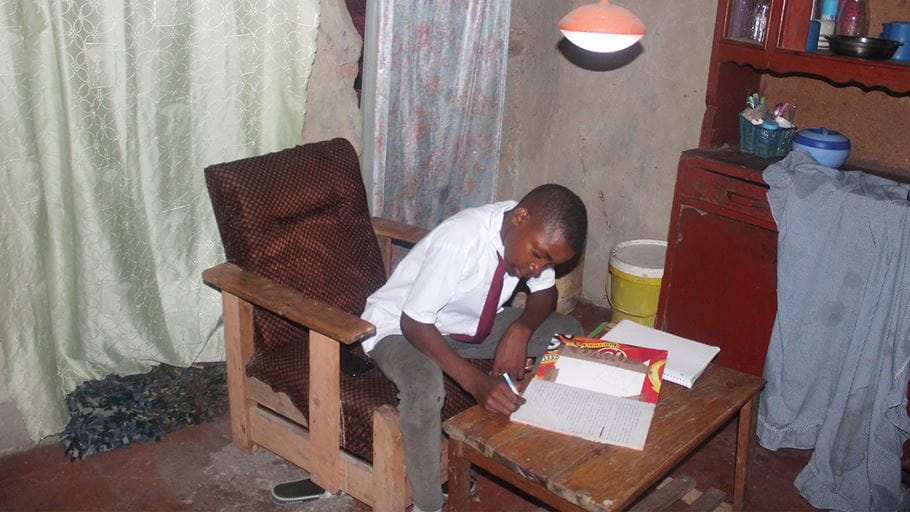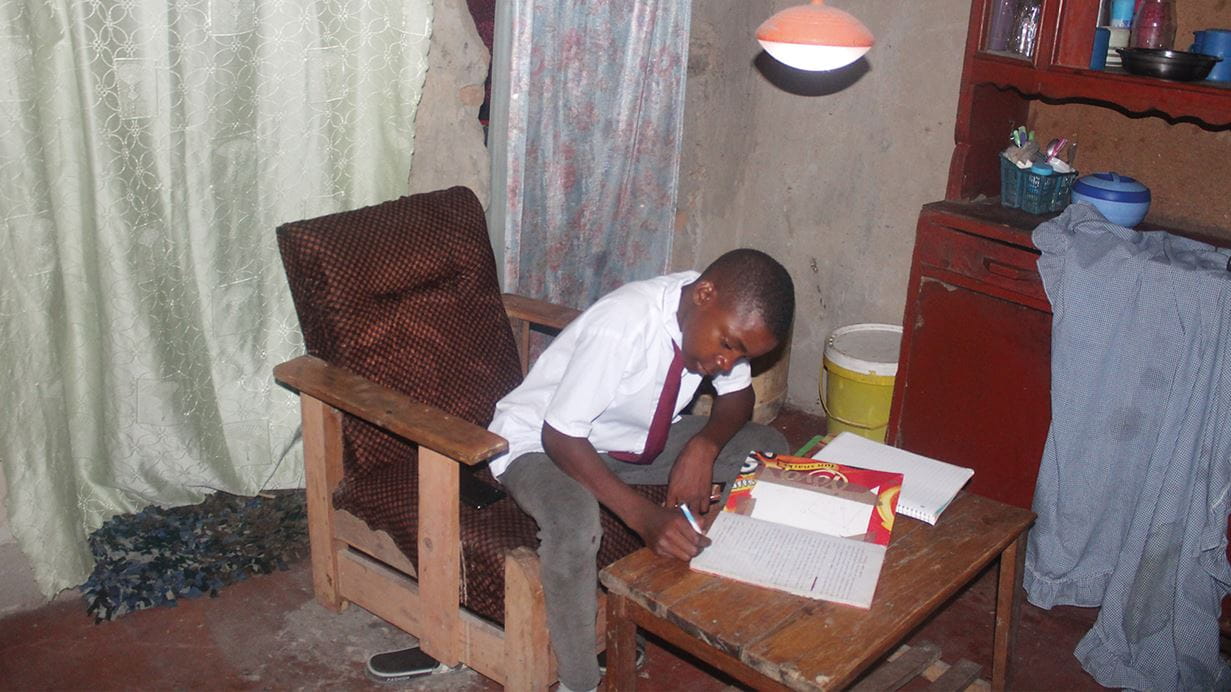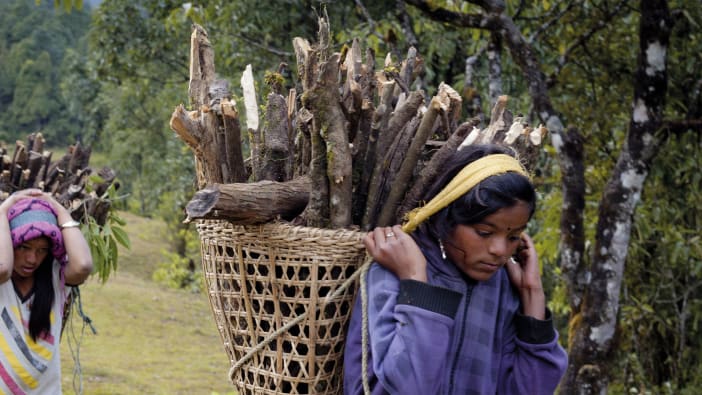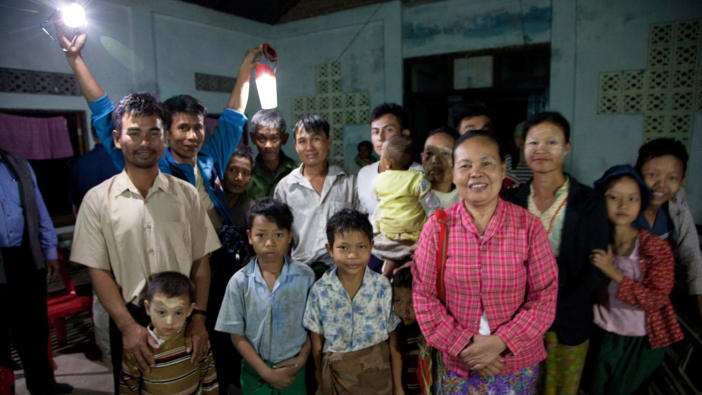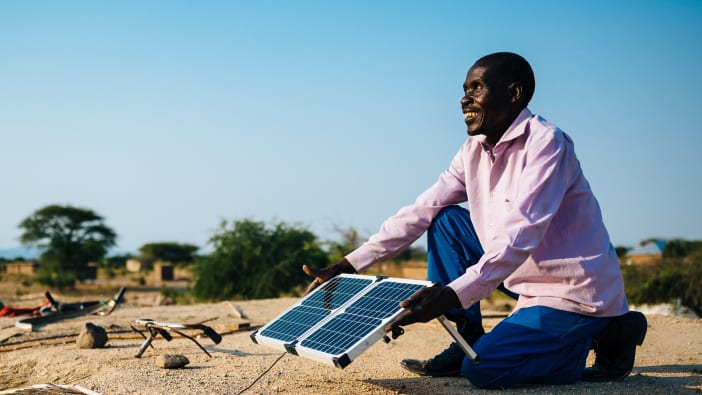Doing schoolwork at home was a huge challenge for Mervis’s children because, after walking miles from school and getting home close to sunset, they had to rely on candles for light.
Mervis says, ‘Not only are candles expensive, but the light is not good for schoolwork and there is always the danger of my younger children accidentally getting burnt.’
Only about a third of Zambians have access to electricity, and in rural areas this number drops to four per cent. As a result, many households depend on kerosene lamps and candles.
Power from the sun
Light My Church Light My Village (LICLIV) was launched in January 2019. The goal of the project is to contribute to a reduction in damaging carbon emissions while increasing affordable access to off-grid renewable energy among households and local churches.
The solar power systems offered by the project include a solar panel, three high‑power lights and a battery to store the electricity that is generated. The battery is suitable for charging mobile phones and other small appliances.
Many jobs have been created for young people in the communities who promote the products and provide follow-up support and maintenance. They also raise awareness about solar technologies to protect people from informal traders who sometimes offer low-cost, low‑quality products that break after a few weeks.
LICLIV works with churches and self‑help groups to ensure that the project is relevant, sustainable and of benefit to everyone. A flexible payment plan allows members of self-help groups to pay for a home solar power system over 12 months.
Affordable
Mervis was delighted when her self-help group decided to create a solar fund in addition to their existing savings scheme. Members can now buy solar equipment from the LICLIV project on credit and make monthly contributions into the fund until they have paid off their loan. This makes the products more affordable for all group members.
Lumbiwe, the group moderator, explains, ‘The group serves as a guarantee, so if anyone defaults on the monthly payment, the group deducts the money from their savings. We are grateful to be able to buy the solar products under flexible terms.’
Mervis says, ‘I now have three lights. One light is placed in the children’s bedroom, one is outside to provide security lighting and the other one is in the family room. Once fully charged, the lights can work for more than eight hours. The children’s school performance has improved because they can study in the evening.’




